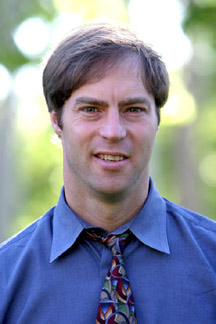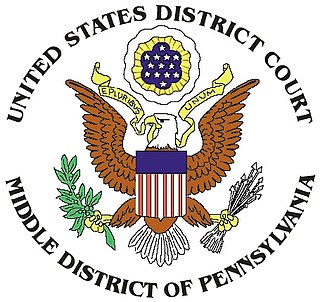Related Research Articles

Creationism is the religious belief that nature, and aspects such as the universe, Earth, life, and humans, originated with supernatural acts of divine creation. In its broadest sense, creationism includes a continuum of religious views, which vary in their acceptance or rejection of scientific explanations such as evolution that describe the origin and development of natural phenomena.
Intelligent design (ID) is a pseudoscientific argument for the existence of God, presented by its proponents as "an evidence-based scientific theory about life's origins". Proponents claim that "certain features of the universe and of living things are best explained by an intelligent cause, not an undirected process such as natural selection." ID is a form of creationism that lacks empirical support and offers no testable or tenable hypotheses, and is therefore not science. The leading proponents of ID are associated with the Discovery Institute, a Christian, politically conservative think tank based in the United States.

The National Center for Science Education (NCSE) is a not-for-profit membership organization in the United States whose stated mission is to educate the press and the public on the scientific and educational aspects of controversies surrounding the teaching of evolution and climate change, and to provide information and resources to schools, parents, and other citizens working to keep those topics in public school science education. Based in Oakland, California, it claims 4,500 members that include scientists, teachers, clergy, and citizens of varied religious and political affiliations. The Center opposes the teaching of religious views in science classes in America's public schools; it does this through initiatives such as Project Steve. The Center has been called the United States' "leading anti-creationist organization". The Center is affiliated with the American Association for the Advancement of Science.

Michael Joseph Behe is an American biochemist and an advocate of the pseudoscientific principle of intelligent design (ID).
Phillip E. Johnson was a UC Berkeley law professor, opponent of evolutionary science, co-founder of the pseudoscientific intelligent design movement, author of the "Wedge strategy" and co-founder of the Discovery Institute's Center for Science and Culture (CSC). He described himself as "in a sense the father of the intelligent design movement". He was a critic of Darwinism, which he described as "fully naturalistic evolution, involving chance mechanisms and natural selection". The wedge strategy aims to change public opinion and scientific consensus, and seeks to convince the scientific community to allow a role for theism, or causes beyond naturalistic explanation, in scientific discourse. Johnson argued that scientists accepted the theory of evolution "before it was rigorously tested, and thereafter used all their authority to convince the public that naturalistic processes are sufficient to produce a human from a bacterium, and a bacterium from a mix of chemicals."

Eugenie Carol Scott is an American physical anthropologist, a former university professor and educator who has been active in opposing the teaching of young Earth creationism and intelligent design in schools. She coined the term "Gish gallop" to describe a fallacious rhetorical technique of overwhelming an interlocutor with as many individually weak arguments as possible, in order to prevent rebuttal of the whole argument.
The intelligent design movement is a neo-creationist religious campaign for broad social, academic and political change to promote and support the pseudoscientific idea of intelligent design (ID), which asserts that "certain features of the universe and of living things are best explained by an intelligent cause, not an undirected process such as natural selection." Its chief activities are a campaign to promote public awareness of this concept, the lobbying of policymakers to include its teaching in high school science classes, and legal action, either to defend such teaching or to remove barriers otherwise preventing it. The movement arose out of the creation science movement in the United States, and is driven by a small group of proponents. The Encyclopædia Britannica explains that ID cannot be empirically tested and that it fails to solve the problem of evil; thus, it is neither sound science nor sound theology.

Stephen C. Meyer is an American author and former educator. He is an advocate of intelligent design, a pseudoscientific creationist argument for the existence of God. and helped found the Center for Science and Culture (CSC) of the Discovery Institute (DI), which is the main organization behind the intelligent design movement. Before joining the DI, Meyer was a professor at Whitworth College. Meyer is a senior fellow of the DI and director of the CSC.
Theistic science, also referred to as theistic realism, is the pseudoscientific proposal that the central scientific method of requiring testability, known as methodological naturalism, should be replaced by a philosophy of science that allows occasional supernatural explanations which are inherently untestable. Proponents propose supernatural explanations for topics raised by their theology, in particular evolution.

The Wedge Strategy is a creationist political and social action plan authored by the Discovery Institute, the hub of the pseudoscientific intelligent design movement. The strategy was put forth in a Discovery Institute manifesto known as the Wedge Document. Its goal is to change American culture by shaping public policy to reflect politically conservative fundamentalist evangelical Protestant values. The wedge metaphor is attributed to Phillip E. Johnson and depicts a metal wedge splitting a log.

Of Pandas and People: The Central Question of Biological Origins is a controversial 1989 school-level supplementary textbook written by Percival Davis and Dean H. Kenyon, edited by Charles Thaxton and published by the Texas-based Foundation for Thought and Ethics (FTE). The textbook endorses the pseudoscientific concept of intelligent design – the argument that life shows evidence of being designed by an intelligent agent which is not named specifically in the book, although proponents understand that it refers to the Christian God. The overview chapter was written by young Earth creationist Nancy Pearcey. They present various polemical arguments against the scientific theory of evolution. Before publication, early drafts used cognates of "creationist". After the Edwards v. Aguillard Supreme Court ruling that creationism is religion and not science, these were changed to refer to "intelligent design". The second edition published in 1993 included a contribution written by Michael Behe.
The "teach the controversy" campaign of the Discovery Institute seeks to promote the pseudoscientific principle of intelligent design as part of its attempts to discredit the teaching of evolution in United States public high school science courses. Scientific organizations point out that the institute claims that there is a scientific controversy where in fact none exists.
An intelligent designer, also referred to as an intelligent agent, is the pseudoscientific hypothetical willed and self-aware entity that the intelligent design movement argues had some role in the origin and/or development of life. The term "intelligent cause" is also used, implying their teleological supposition of direction and purpose in features of the universe and of living things.

Kitzmiller v. Dover Area School District, 400 F. Supp. 2d 707 was the first direct challenge brought in the United States federal courts testing a public school district policy that required the teaching of intelligent design (ID), ultimately found by the court to not be science. In October 2004, the Dover Area School District of York County, Pennsylvania, changed its biology teaching curriculum to require that intelligent design be presented as an alternative to evolution theory, and that Of Pandas and People, a textbook advocating intelligent design, was to be used as a reference book. The prominence of this textbook during the trial was such that the case is sometimes referred to as the Dover Panda Trial, a name which recalls the popular name of the Scopes Monkey Trial in Tennessee, 80 years earlier. The plaintiffs successfully argued that intelligent design is a form of creationism, and that the school board policy violated the Establishment Clause of the First Amendment to the United States Constitution. The judge's decision sparked considerable response from both supporters and critics.

Neo-creationism is a pseudoscientific movement which aims to restate creationism in terms more likely to be well received by the public, by policy makers, by educators and by the scientific community. It aims to re-frame the debate over the origins of life in non-religious terms and without appeals to scripture. This comes in response to the 1987 ruling by the United States Supreme Court in Edwards v. Aguillard that creationism is an inherently religious concept and that advocating it as correct or accurate in public-school curricula violates the Establishment Clause of the First Amendment.
Creationism's Trojan Horse: The Wedge of Intelligent Design is a 2004 book by Barbara Forrest and Paul R. Gross on the origins of intelligent design, specifically the Discovery Institute's Center for the Renewal of Science and Culture and its wedge strategy. The authors are highly critical of what they refer to as intelligent design creationism, and document the intelligent design movement's fundamentalist Christian origins and funding.
The Discovery Institute has conducted a series of related public relations campaigns which seek to promote intelligent design while attempting to discredit evolutionary biology, which the Institute terms "Darwinism". The Discovery Institute promotes the pseudoscientific intelligent design movement and is represented by Creative Response Concepts, a public relations firm.
Walter L. Bradley is a retired professor of engineering, old Earth creationist and an advocate of intelligent design.
The relationship between intelligent design and science has been a contentious one. Intelligent design (ID) is presented by its proponents as science and claims to offer an alternative to evolution. The Discovery Institute, a politically conservative think tank and the leading proponent of intelligent design, launched a campaign entitled "Teach the Controversy", which claims that a controversy exists within the scientific community over evolution. The scientific community rejects intelligent design as a form of creationism, and the basic facts of evolution are not a matter of controversy in science.
References
- ↑ Lebo, L (2005-09-29). "Witness bashes intelligent design; A philosopher of science said the controversial idea rejects science". York Daily Record .
- ↑ "No method to intelligent design, witness says". NBC News. 2005-11-28. Retrieved 2010-08-03.
- ↑ "Kitzmiller v. Dover Area School District; Trial transcript: Day 3 (September 28), AM Session, Part 1". Talk.origins. 2005-09-28. Retrieved 2010-08-03.
- ↑ Slack G (2008). The Battle Over the Meaning of Everything: Evolution, Intelligent Design, and a School Board in Dover, PA. San Francisco: Jossey-Bass. pp. 110–123. ISBN 978-0-470-37931-8.
- ↑ "The University of Texas at Austin Chapter of Sigma Xi, The Scientific Research Society". Archived from the original on 2 December 1998. Retrieved 20 September 2005.
- ↑ "Michigan Atheists Newsletter". Archived from the original on 2011-07-27. Retrieved 2010-08-03.
- ↑ "AIBS honors outstanding contributions to biology". American Institute of Biological Sciences. 2009-05-15. Retrieved 2010-08-03.
- ↑ "Friend of Darwin Awards". National Center for Science Education . Retrieved 2010-08-03.
- 1 2 "People at LBC: Robert Pennock, Ph.D." Lyman Briggs College . Retrieved 2010-08-03.
- ↑ "'U' professors take seats among the 2006 American Association for the Advancement of Science Fellows". Michigan State University. 2006-11-27. Archived from the original on 2008-08-21. Retrieved 2010-08-03.
- ↑ "Robert T. Pennock: Curriculum Vitae". Michigan State University. 2008-08-11. Retrieved 2010-08-03.